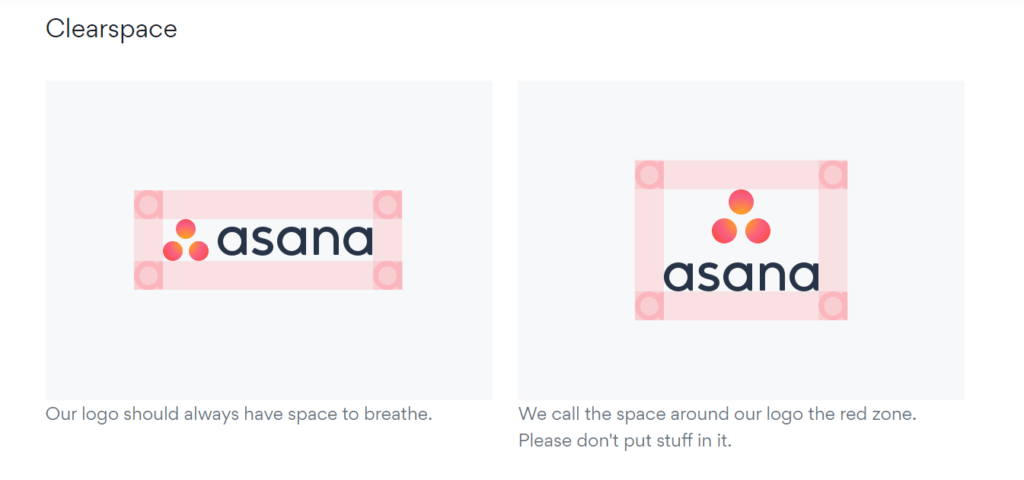The science of brand guidelines is not easy. At Gingersauce we took it upon ourselves to educate and provide tips on how to do branding right – and what’s the best way to explain if not by providing and explaining examples? Take a look at these brand guidelines examples to learn what is the best way to structure them.
Find more brand book examples in the part 1 of this article.
Brand guidelines examples
1. Burger King brand guidelines


Why Burger King’s brand book is so great? They did a great job of defining the main character of their story. It’s their guests. Throughout the whole file, they talk to their guest and explain the grounds they stand on. Page by page the brand explains all of their views on their work. We will not lie, this is an interesting read by itself.

Their brand guidelines evoke emotions, which is one of the first markers of a true brand.

Another thing which we define as a great brand move was to take the pictures of their guests and put them inside the brand book. They literally tell everyone that they won’t be here if not for their customers. And also help everyone reading the brand book to feel like they belong; as if they were among those who supported this brand.

Burger King also states the design principles they go by, with example pictures, allowing the designers to feel their brand style through.
2. Markabat brand guidelines

The Markabat brand book was created using Gingersauce – a platform for creating brand guidelines more efficiently. As you can see, the designer behind the example has chosen a simple, modern style.

This brand book example is a good one, since it clearly states the style of the brand, and provides guidelines for their further usage. As you know, the main thing ensuring brand awareness is consistency. If all assets are kept in one brand book, and can be easily referenced is a good starting point towards a consistent brand style.

As you can see from the pictures, the brand book also includes mockups. They demonstrate how the brand assets look in the real world and provide a much clearer understanding of the brand itself.

3. Asana brand guidelines

Asana’s brand guidelines are simple and can be easily followed. The main advantage we would say is that the brand provides all the asset files to download, thus ensuring that everyone uses the right ones only.
The brand guidelines kit contains all the elements of a minimalistic and effective style guide: the logo variations, misuses, color palettes, and the clear space rules.


What is also an advantage, is that they put their tone of voice into every element of their branding, including the brand style guide. Look how they joke around and don’t take things too seriously. Things like this create a clear association between the brand and its assets.
4. UBER brand guidelines
In order to make their brand guidelines even more accessible, UBER has a separate landing page, where describes the elements that comprise their whole brand strategy.

This brand takes its assets system seriously and requires everyone to do so as well. If you’re a new designer to the company, it won’t take you long until you realize how to make their assets – they are so clear with their explanations, that there’s no chance to miss anything.



As we’ve mentioned earlier brand style guides are not only for the users, or shareholders, or investors. Most and foremost, they are for the team itself. A brand needs to keep every member of their team on the same page: this way there will never be any doubt about what brand step to take.
5. Mema Ngai brand guidelines


This is another brand that has created their brand book using Gingersauce. This particular one is a great example of a business that knows exactly what they are here for – and the brand book reflects that. Mema Ngai brand guidelines contain clear explanations on their mission and values. Why this is needed? Mission and vision statements describe what bigger goal a brand has, and the exact way it is going to achieve it. Values are the principles this brand uses to guide itself towards that goal. This brand guidelines element is crucial to have, especially if you’re a younger business.


6. Branded Design Studio brand guidelines

Yet another good brand guidelines example, that were created with the help of the Gingersauce platform. This time, a bit shorter – the brand designer skipped a few chapters that were irrelevant, and only included the ones that were important. Concise yet informative still.

On the example of this brand book, we would like to explain the importance of the brand book cover. Yes, you read that right. What seems to be so insignificant, and gets easily overlooked, turns out to be the first time you communicate with the customer. Or if we’re talking about designers presenting brand guidelines, to clients.
The cover is the first chance for you to communicate the brand’s message. On the subconscious level, this is the point where people form their impression and first opinions. If you have a chance, we’d advise you to spend a few minutes to create an appealing cover that will communicate the right association.

The bottom line
As you can see from all the brand guidelines examples we’ve listed your brand book needs:
- To be a reflection of your brand. Don’t be afraid to show your true colors, and channel the tone of voice.
- To be to the point. If you truly believe that some of the chapters don’t apply to your brand, skip them. Include the ones that are crucial both for your team, and the outside viewer.
- To be a guide. Brand guidelines are called like that for a reason. They serve you and the team as a rulebook for what your brand is, and what isn’t. Brand book is needed to keep everyone on the same page.
Step up your branding game with Gingersauce
If you still not sure what you should include in a brand book, try using Gingersauce, a platform for creating professional brand guidelines. An app was created as a means to help a designer save time on the brand book creation: smart automization takes on all the pixel pushing, leaving more time for being creative.



